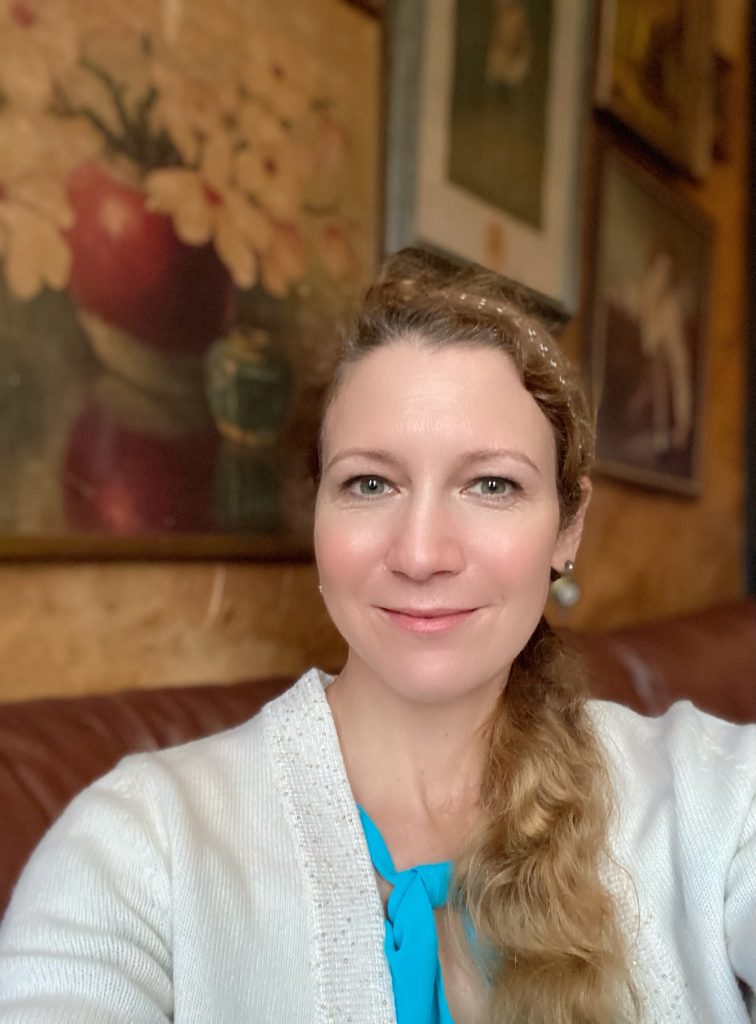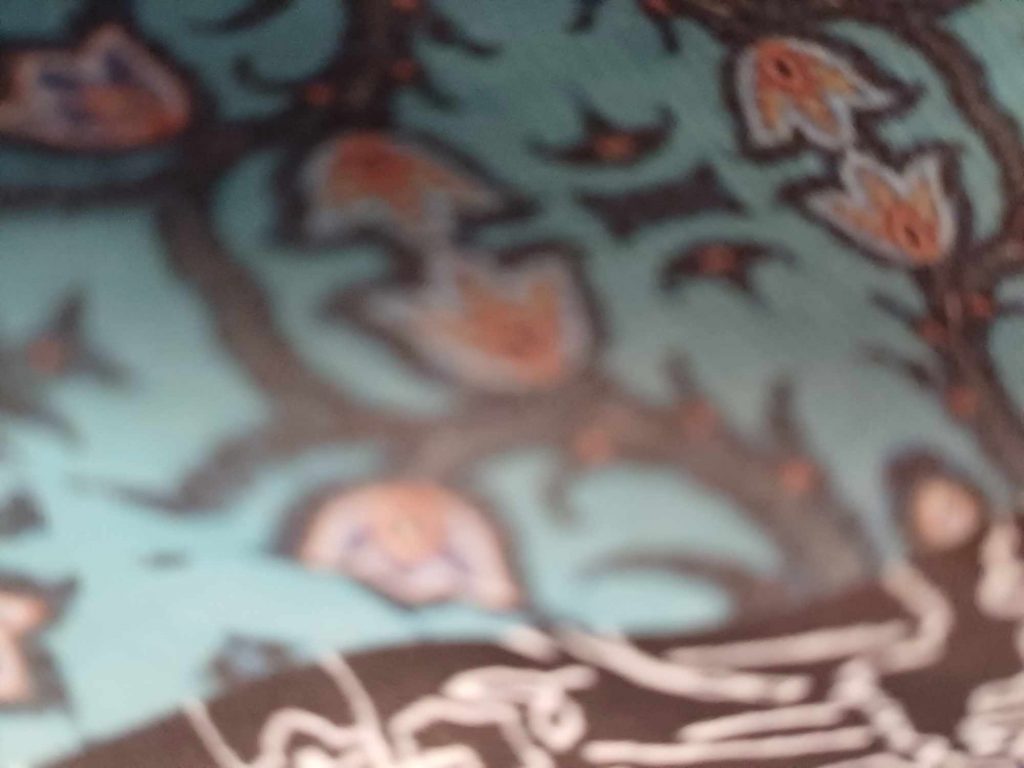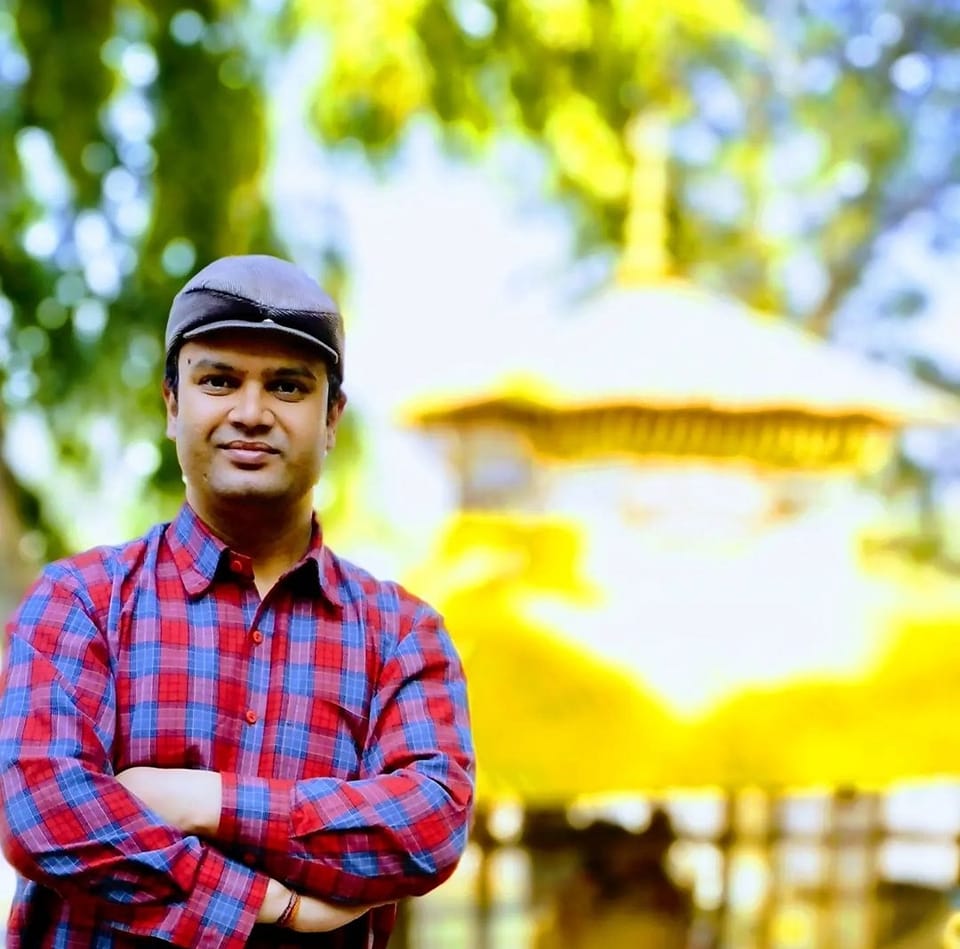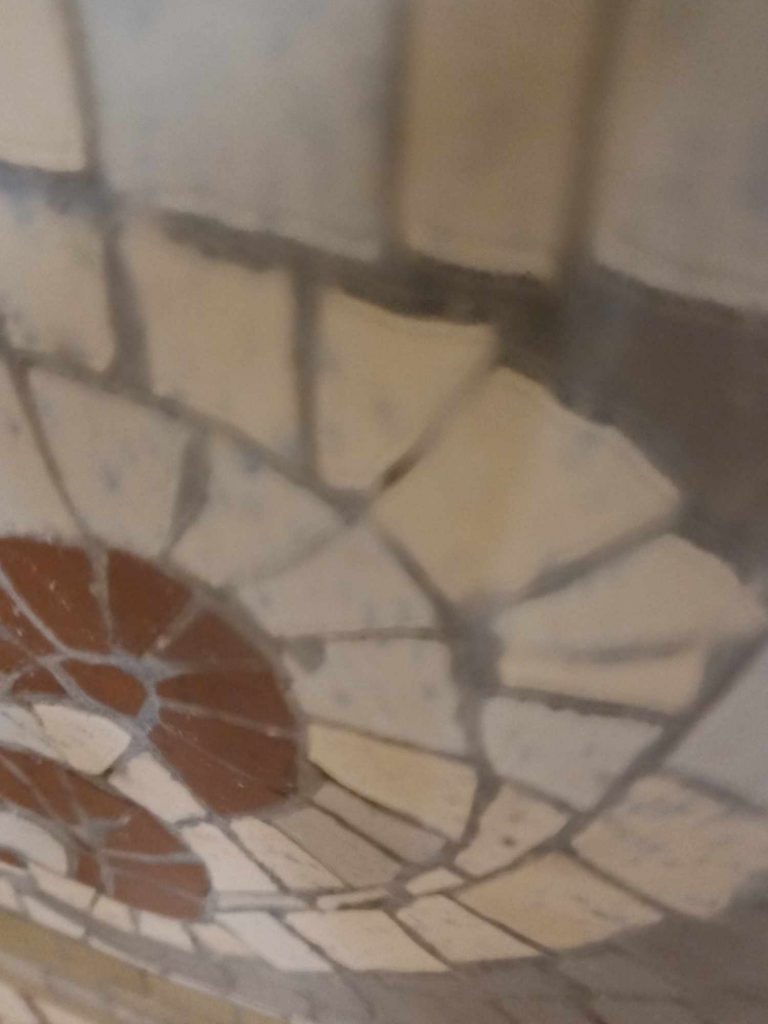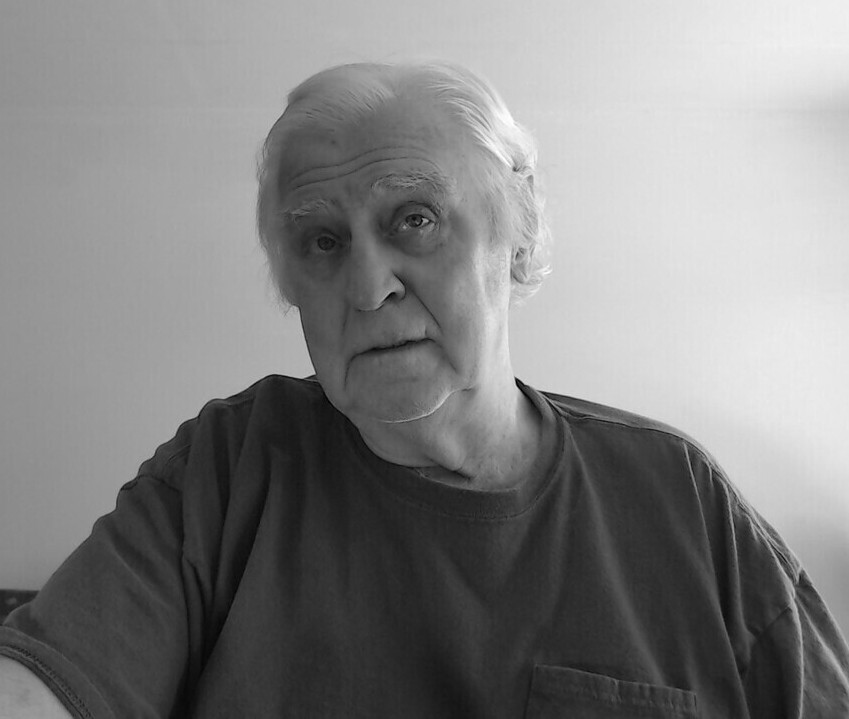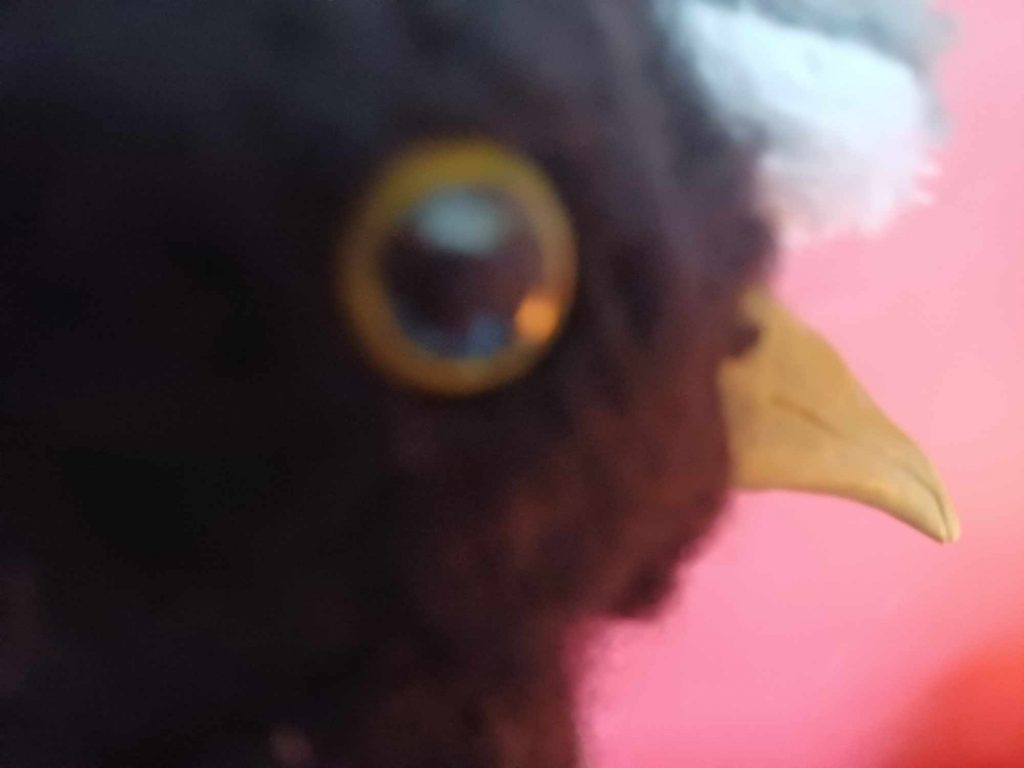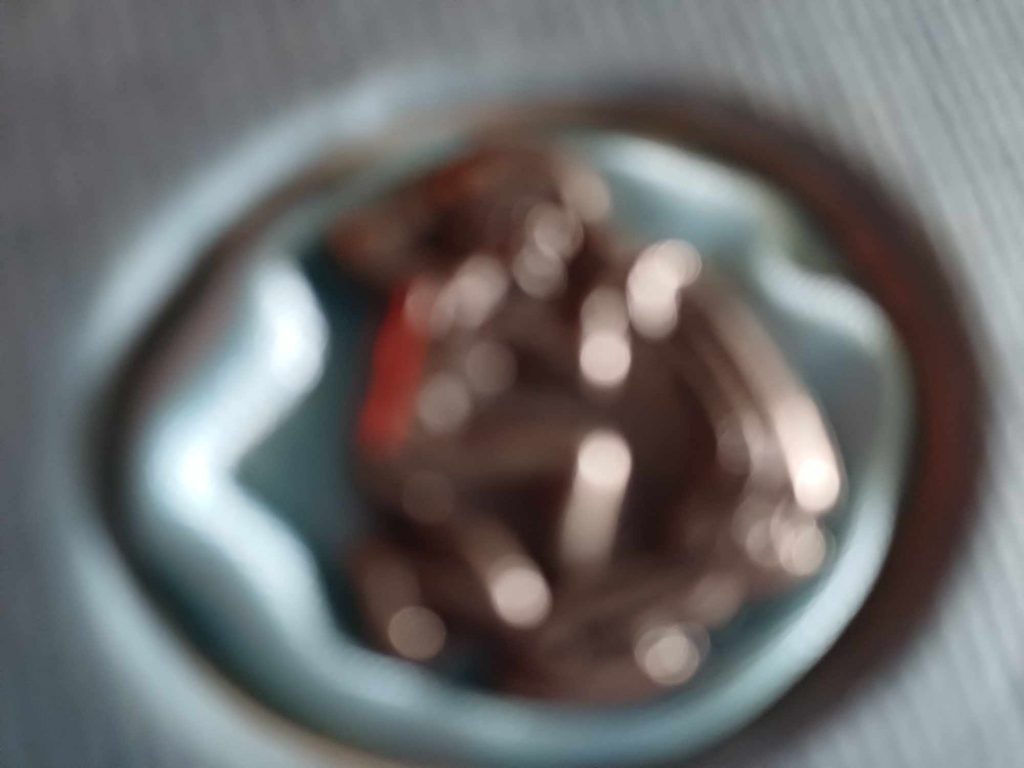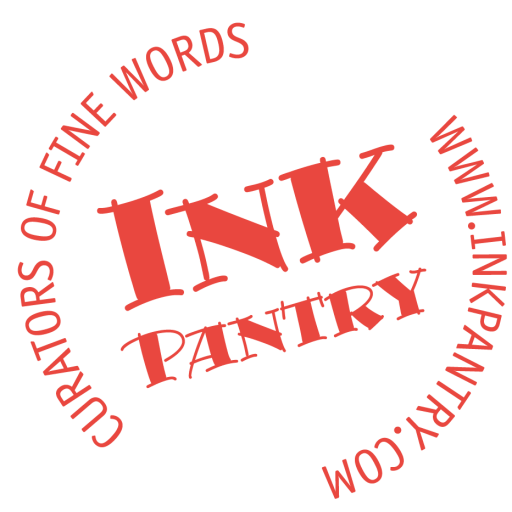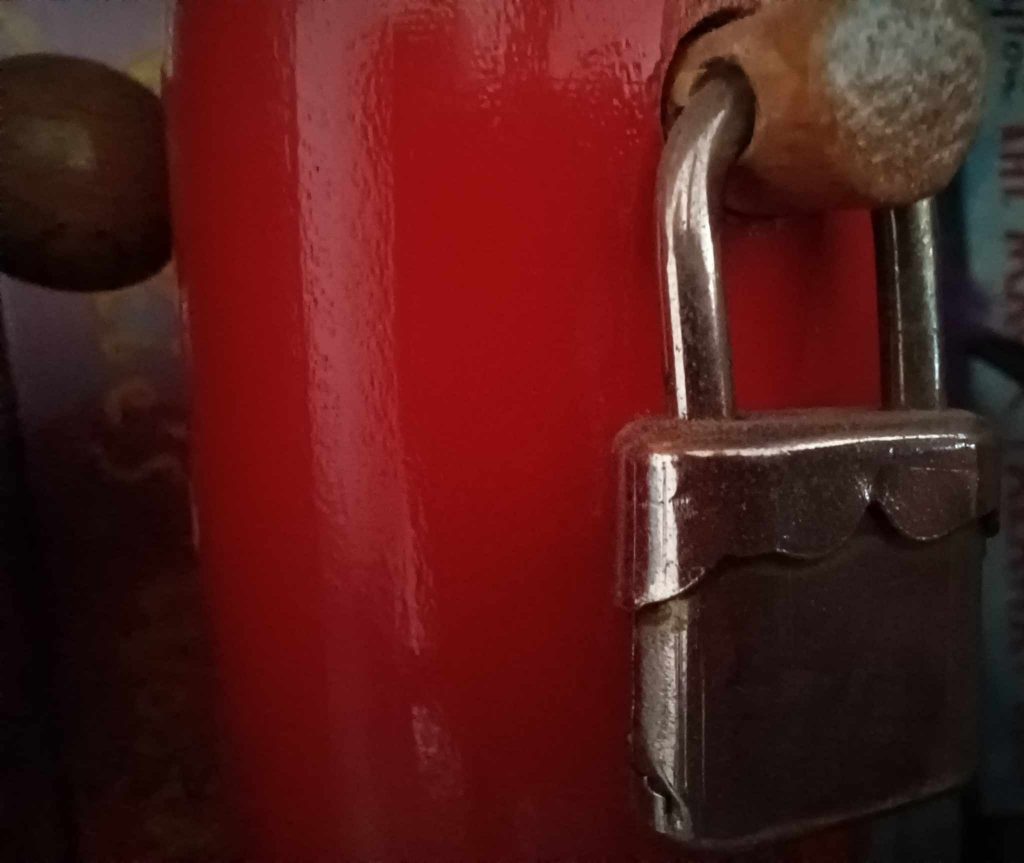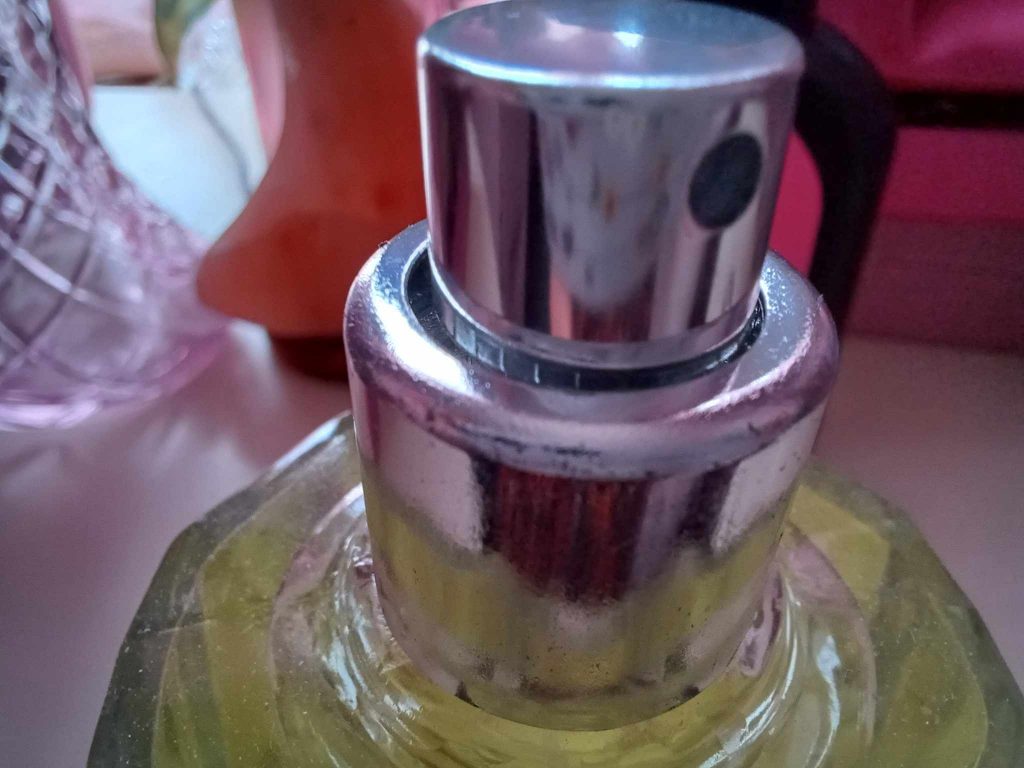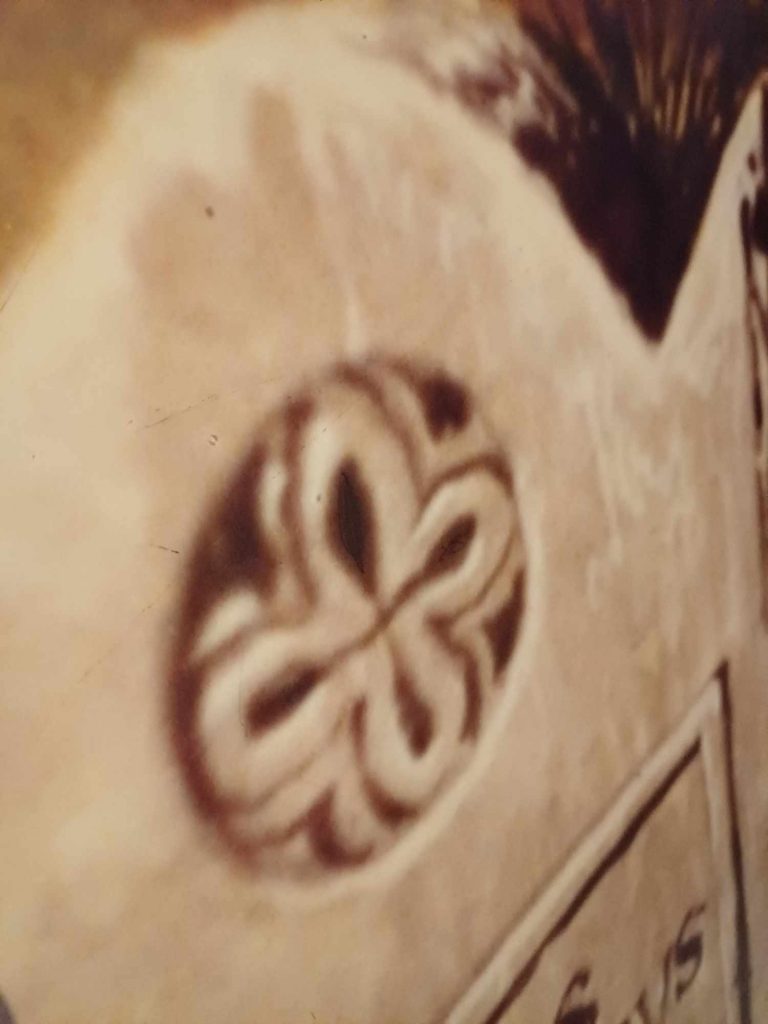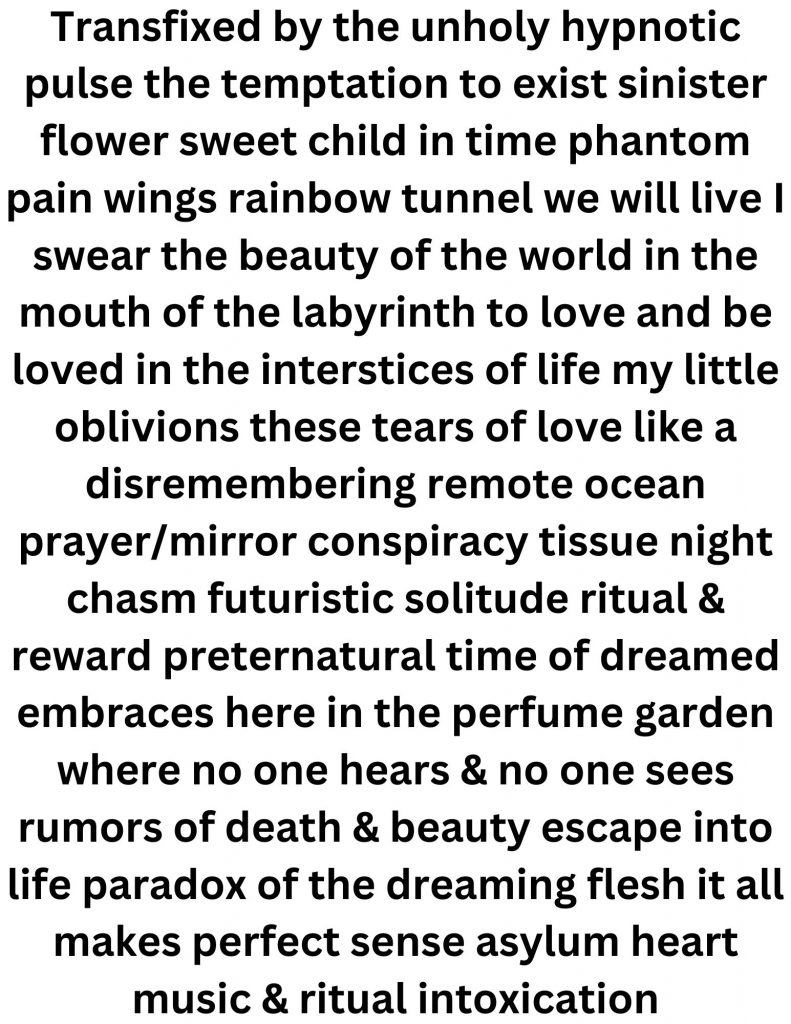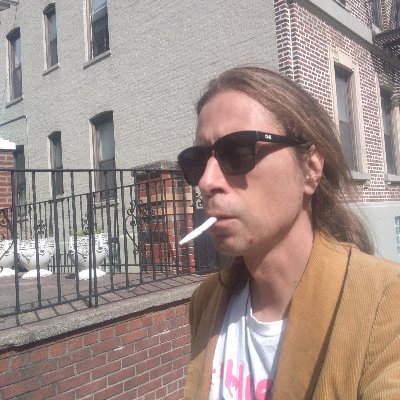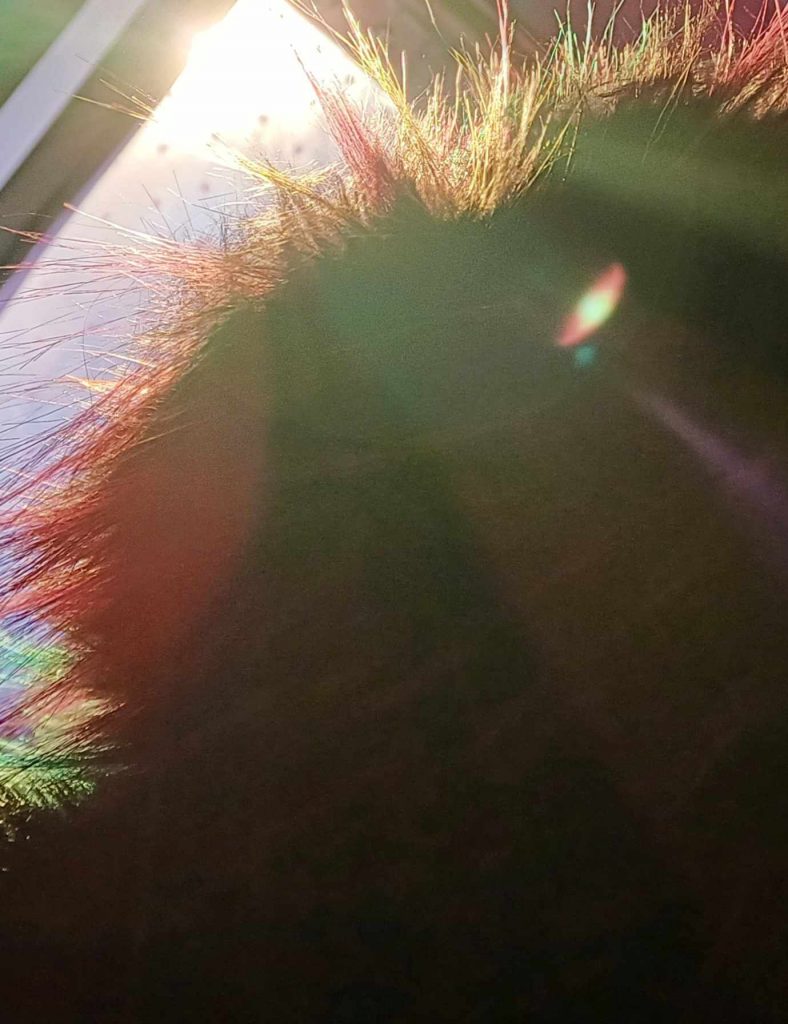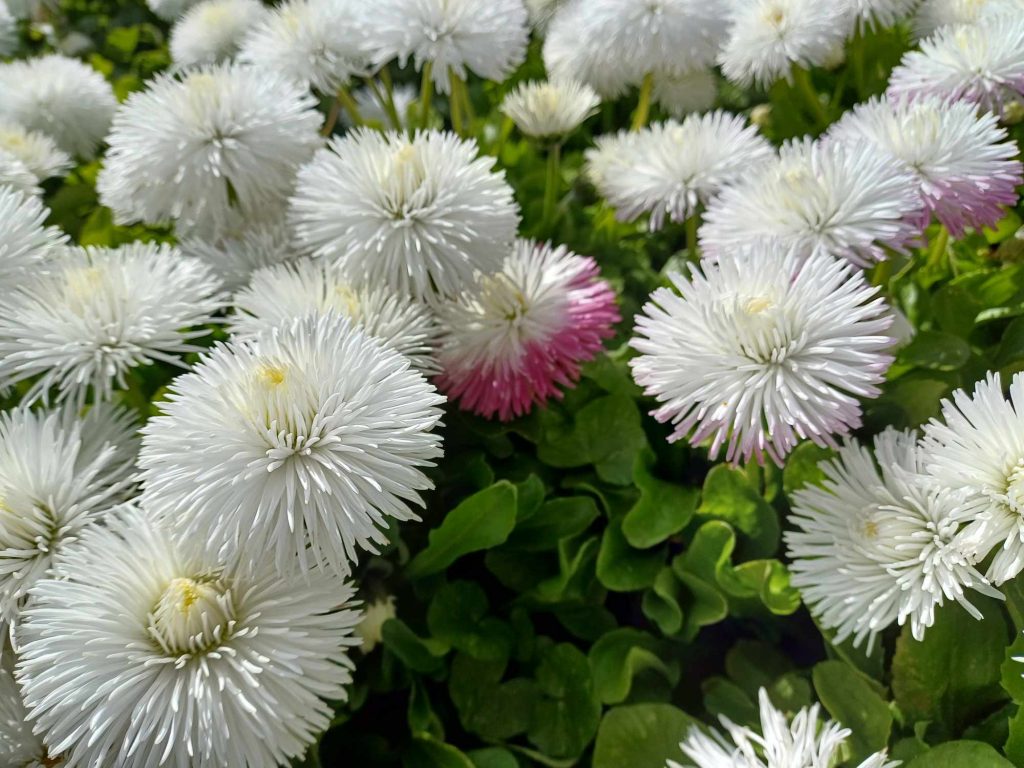
Golden Smock
Vibrant colours and geometric prints
burst from the curated
and manicured environment.
Fanciful flower stems
and lucky turtles
lovingly adorn a plain corner.
Intricate patterns
made with mathematical formulas.
A randomly placed,
colourful floor tile,
next to a gumball machine
catches her eye,
and her mouth curls up on one side with a smirk,
remembering times long ago.
Portraits, collages, stories,
and whole histories
are sewn into the quilts,
with nimble fingers,
yet they aren’t used on a bed or couch
to curl under for warmth and security,
they are presented
on the wall as fine art,
a fabric mosaic masterpiece.
Tiny chairs in primary colours
and toddler tables
are tucked in a children’s corner with blocks,
Legos, a toy truck, and baby dolls
so carefully packed,
yet quiet and still,
oddly waiting
for a playful child to return?
Mother’s apron is carefully sewn
from burnt orange and gold cloth
with a beautiful rosette decoration.
The smock has pockets,
like a pouch in the front,
and ties with ribbons at the sides.
Her lovely work shirt,
soft and light to the touch
with bright colours for the child’s eyes to admire.
She wants to be present for them,
sturdy, kind, creative and accepting,
so when she can’t be there,
they will remember
the calm and warmth of the golden smock,
like a shining sunset.
It is her armour,
her uniform that gives her courage and confidence
to be better and wiser for them,
for herself.
She touches her fingertips to her chest
where a miniature sun resides within,
and she knows she is changing.
She calls upon that sun
to guide and nourish her motivations.
When it sets,
the moon’s silver glow
shows the way until morning.
Kind Souls
Socks and shoes
are soggy wet.
Thunder rumbles
and lightning flashes.
It sounds like a tall oak snapped in half.
Today I am uneasy,
not knowing which way to go
on almost every decision,
so I try different directions
to see what works.
The first one didn’t seem right
so I start over and try again
in a safer place.
I found a kind face,
who took pity on me,
and a nice helper
who sewed thread onto my torn apron string
with stiff, swift fingers.
I feel my body is weak.
I need wholesome food for nourishment
and to settle the knot in my stomach.
I had a bad night.
Up intermittently,
but never knew the time.
I had sweats then a jolt of chill.
I slept in late
and wrong footed the day.
A river of water
flows down the street.
I am only half prepared.
I have a large umbrella,
found in the trunk from father,
but I am dressed for a sunny summer day
in a jumper and white sneakers!
Can’t step in a puddle or they will be ruined,
so I turn back for cover
like an alley cat crouched in the doorway
with big eyes looking out onto the world,
hoping for kind souls to cross my path,
not nasty boars with sharp tusks.
The storm tricked me.
Just when I thought it would let up,
it struck again
and rain came pouring down
on the town, on the town, on the town.
The sun tried to come out again
and clear up the mess.
Plans dashed
and confusion came over me again.
My mind went to a sick child at home
and my parents worry for me being alone.
They tell me to leave early
and come home.
They do not understand this place.
My husband says to stay,
do my work,
take the journey,
but the tone in his voice sounds impatient
that I am hesitating
and checking in.
Communication is strained.
Which way should I go?
I am happy to be here on this quest
with these characters
in the play.
They are trying to figure out the puzzle too.
It is calm now
and a little boy bends down into a puddle
and splashes water with his hand,
so does father.
Rose pink glasses catch the setting sunlight
at the dinner table
and it provides hope
tomorrow will be a better day.
Low Country
Driving carefully
through the storm.
Lines of swollen clouds
like black and grey ribbons.
Take me home angels.
Don’t let me go off course.
Follow the map
as it guides me through
the countryside.
Dark trees
with green buds.
I saw a mare standing over her foal
as protection in the rain.
The thunder scares me
but I have to drive straight through it
to get to the other side.
A fire smouldered in the rain
and filled my nostrils with smoke
from an old brick chimney,
years ago in a northern village.
Large black crows swoop
from the pine tree tops.
I am embarrassed that I left early,
but I know myself.
I know what I came to do.
I accomplished it
and I am ready to go home,
even though I could sense in his voice
he was disappointed in me,
not achieving the miracle.
Broken rooftops
and cottages sag by the roadside.
There are some white picket fences
that are kept with care.
Lone scary cypress
and Tuscan orange grass
sprout up like an Italian countryside,
yet the pines and thunder clouds
remind me
I’m in the low country.
Ditches are swelled with water
in this ghost town.
Rusted tin awnings and decaying black iron balconies
are on my view
as I creep around the storm
toward home, home, home.
Safety of city lights,
places I know
and the tender faces
I love, love, love.
Plucked Pebble
Round like a gumdrop or lozenge
Old and wrinkled
and yellowed with time,
like cracked and chipping wallpaper.
If it had a smell
it would be one of lingering cigarette smoke,
or dust.
I’m not sure why
I picked this pebble.
It was in a sunny spot
on the ground.
It is golden in colour,
like a warm beach.
Smooth like a bathtub
but hard, like a bone.
My two-year old daughter presses her fingers
to my collarbone
or to my wrist
and says, “Bones in there.”
It’s a tiny thing,
just a nothing
from the dirt.
Yet, I picked it
and study it
like it is special.
Doesn’t it feel nice to be picked,
as special?
To be regarded with care?
To spend time
with this nothing pebble?
Then, I vow to spend this quality time
with the people I love,
with myself.
Take time to understand the ugly and beautiful.
That is where connection is knitted.
I haven’t said a word,
yet I understand this pebble.
It will sink to the bottom of the creek
if I toss it there.
Probably, no one on Earth
will hold it or look at it so closely ever again.
Then, make the most out of this immediate time.
This moment matters.
All moments matter.
If this pebble has meaning,
then zoom out
and everything in my eyesight
has meaning and significance.
Everything and everyone
special to me,
is worthy of notice.
Dana Zullo is an educator and mother in Georgia. Her poems have been published in Paprika Southern and Literary Yard. Her artist biographies are seen in printmaking guides at Crown Point Press. She received artist residencies at South Porch Artists in SC and Dairy Hollow, AR. She also creates floral art with the Ichiyo School of Ikebana and previously taught art in the Peace Corps in Ghana. Inspired by personal development, motherhood, and the natural world, her writing and designs are found on Instagram.
